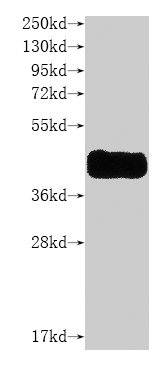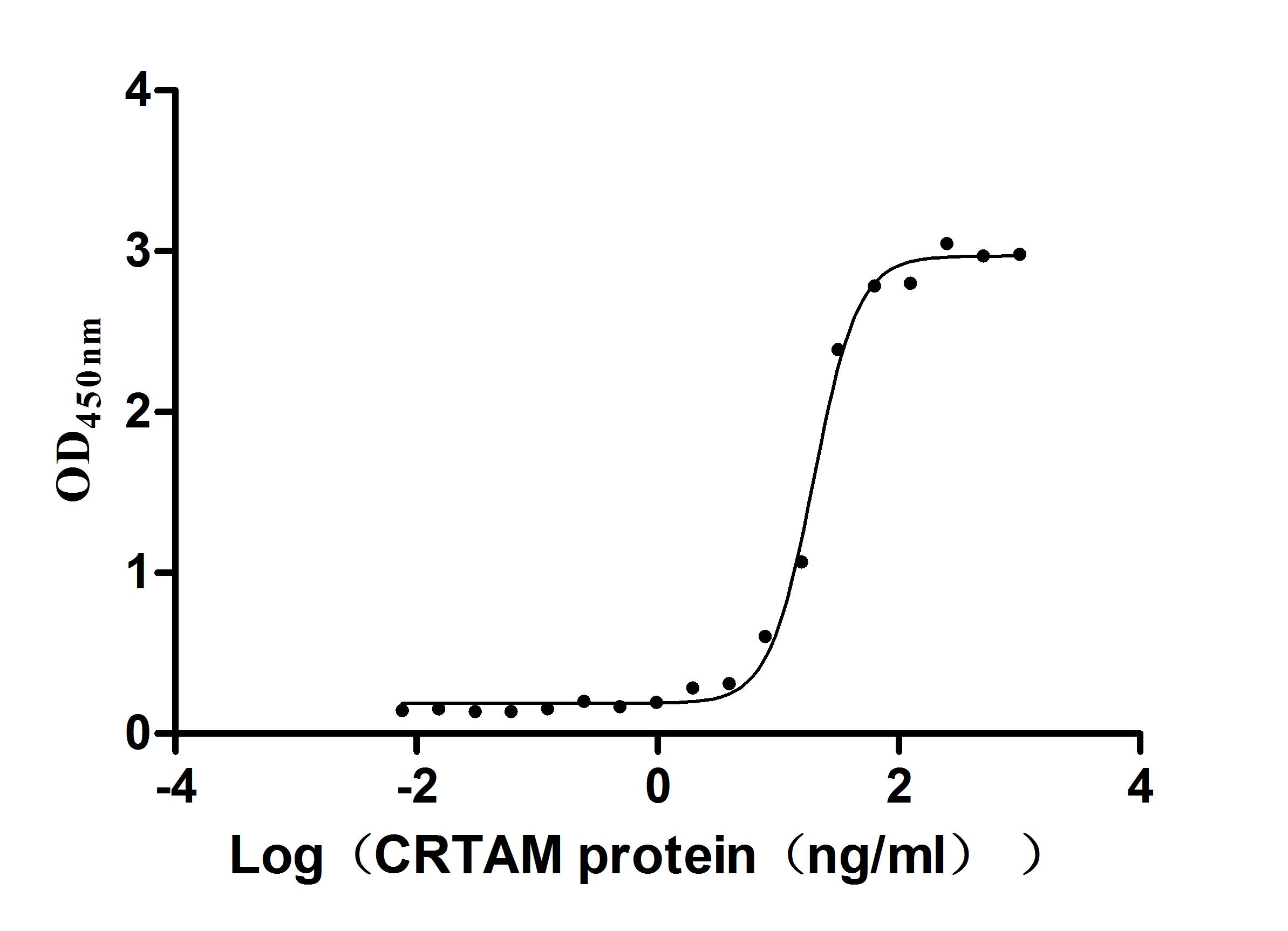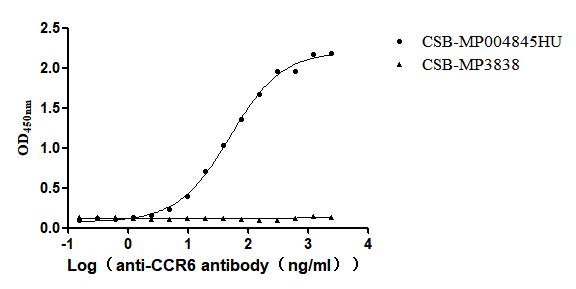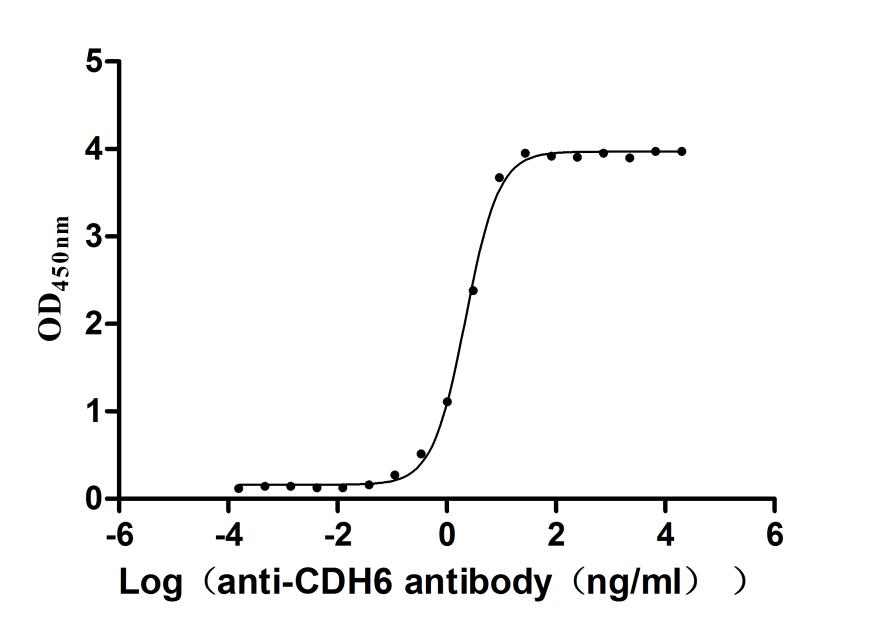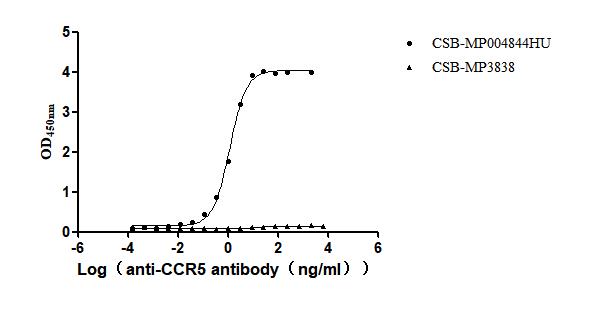Recombinant Mouse Aurora kinase A (Aurka)
-
货号:CSB-YP002454MO
-
规格:
-
来源:Yeast
-
其他:
-
货号:CSB-EP002454MO
-
规格:
-
来源:E.coli
-
其他:
-
货号:CSB-EP002454MO-B
-
规格:
-
来源:E.coli
-
共轭:Avi-tag Biotinylated
E. coli biotin ligase (BirA) is highly specific in covalently attaching biotin to the 15 amino acid AviTag peptide. This recombinant protein was biotinylated in vivo by AviTag-BirA technology, which method is BriA catalyzes amide linkage between the biotin and the specific lysine of the AviTag.
-
其他:
-
货号:CSB-BP002454MO
-
规格:
-
来源:Baculovirus
-
其他:
-
货号:CSB-MP002454MO
-
规格:
-
来源:Mammalian cell
-
其他:
产品详情
-
纯度:>85% (SDS-PAGE)
-
基因名:
-
Uniprot No.:
-
别名:Aurka; Aik; Airk; Ark1; Aura; Ayk1; Btak; Iak1; Stk15; Stk6Aurora kinase A; EC 2.7.11.1; Aurora 2; Aurora family kinase 1; Aurora/IPL1-related kinase 1; ARK-1; Aurora-related kinase 1; Ipl1- and aurora-related kinase 1; Serine/threonine-protein kinase 6; Serine/threonine-protein kinase Ayk1; Serine/threonine-protein kinase aurora-A
-
种属:Mus musculus (Mouse)
-
蛋白长度:Full length protein
-
表达区域:1-395
-
氨基酸序列MDRCKENCVS RPVKTTVPFG PKRVLVTEQI PSQNLGSASS GQAQRVLCPS NSQRVPSQAQ KLGAGQKPAP KQLPAASVPR PVSRLNNPQK NEQPAASGND SEKEQASLQK TEDTKKRQWT LEDFDIGRPL GKGKFGNVYL ARERQSKFIL ALKVLFKTQL EKANVEHQLR REVEIQSHLR HPNILRLYGY FHDATRVYLI LEYAPLGTVY RELQKLSKFD EQRTATYITE LANALSYCHS KRVIHRDIKP ENLLLGSNGE LKIADFGWSV HAPSSRRTTM CGTLDYLPPE MIEGRMHDEK VDLWSLGVLC YEFLVGMPPF EAHTYQETYR RISRVEFTFP DFVTEGARDL ISRLLKHNAS QRLTLAEVLE HPWIKANSSK PPTGHTSKEP TSKSS
-
蛋白标签:Tag type will be determined during the manufacturing process.
The tag type will be determined during production process. If you have specified tag type, please tell us and we will develop the specified tag preferentially. -
产品提供形式:Lyophilized powder
Note: We will preferentially ship the format that we have in stock, however, if you have any special requirement for the format, please remark your requirement when placing the order, we will prepare according to your demand. -
复溶:We recommend that this vial be briefly centrifuged prior to opening to bring the contents to the bottom. Please reconstitute protein in deionized sterile water to a concentration of 0.1-1.0 mg/mL.We recommend to add 5-50% of glycerol (final concentration) and aliquot for long-term storage at -20℃/-80℃. Our default final concentration of glycerol is 50%. Customers could use it as reference.
-
储存条件:Store at -20°C/-80°C upon receipt, aliquoting is necessary for mutiple use. Avoid repeated freeze-thaw cycles.
-
保质期:The shelf life is related to many factors, storage state, buffer ingredients, storage temperature and the stability of the protein itself.
Generally, the shelf life of liquid form is 6 months at -20°C/-80°C. The shelf life of lyophilized form is 12 months at -20°C/-80°C. -
货期:Delivery time may differ from different purchasing way or location, please kindly consult your local distributors for specific delivery time.Note: All of our proteins are default shipped with normal blue ice packs, if you request to ship with dry ice, please communicate with us in advance and extra fees will be charged.
-
注意事项:Repeated freezing and thawing is not recommended. Store working aliquots at 4°C for up to one week.
-
Datasheet :Please contact us to get it.
靶点详情
-
功能:Mitotic serine/threonine kinase that contributes to the regulation of cell cycle progression. Associates with the centrosome and the spindle microtubules during mitosis and plays a critical role in various mitotic events including the establishment of mitotic spindle, centrosome duplication, centrosome separation as well as maturation, chromosomal alignment, spindle assembly checkpoint, and cytokinesis. Required for normal spindle positioning during mitosis and for the localization of NUMA1 and DCTN1 to the cell cortex during metaphase. Required for initial activation of CDK1 at centrosomes. Phosphorylates numerous target proteins, including ARHGEF2, BORA, BRCA1, CDC25B, DLGP5, HDAC6, KIF2A, LATS2, NDEL1, PARD3, PPP1R2, PLK1, RASSF1, TACC3, p53/TP53 and TPX2. Regulates KIF2A tubulin depolymerase activity. Required for normal axon formation. Plays a role in microtubule remodeling during neurite extension. Important for microtubule formation and/or stabilization. Also acts as a key regulatory component of the p53/TP53 pathway, and particularly the checkpoint-response pathways critical for oncogenic transformation of cells, by phosphorylating and destabilizing p53/TP53. Phosphorylates its own inhibitors, the protein phosphatase type 1 (PP1) isoforms, to inhibit their activity. Necessary for proper cilia disassembly prior to mitosis. Regulates protein levels of the anti-apoptosis protein BIRC5 by suppressing the expression of the SCF(FBXL7) E3 ubiquitin-protein ligase substrate adapter FBXL7 through the phosphorylation of the transcription factor FOXP1.
-
基因功能参考文献:
- AURKA is expressed in several cell types in the testis. Spermatogonia and spermatocytes express AURKA as expected based on the known role of this kinase in cell division. Surprisingly, we also found AURKA localized to spermatids and the flagellum of spermatozoa. PMID: 29842884
- ex vivo cells derived from teratomas exhibited high self-renewal capacity that was linked to Aurora-A kinase activity and gave rise to lung metastasis when injected into the tail vein of immunocompromised mice. PMID: 29393405
- Aurora kinase inhibitor CCT137690 induces necrosis-like death in pancreatic ductal adenocarcinoma cells, via RIPK1, RIPK3, and MLKL signaling. PMID: 28764929
- CIP2A acts as a scaffold for CEP192-mediated microtubule organizing center assembly by recruiting Plk1 and aurora A during meiotic maturation in mouse oocytes PMID: 28935709
- AURKA stabilizes MYC to promote tp53-altered liver tumor cell survival. PMID: 27213815
- Bcl2l10, Tpx2, and Aurka co-localized on the meiotic spindles, and Bcl2l10 was present in the same complex with Tpx2. PMID: 27753540
- Our findings demonstrate that prolonged overexpression of Aurora-A can be a driver somatic genetic event in mammary adenocarcinomas associated with deregulated tumor-relevant pathways in the Aurora-A subset of human breast cancer PMID: 27624071
- Data show that aurora-A kinase (AURKA) supports effective spindle formation in zygote. PMID: 26174602
- observations revealed that the alteration of PKB-GSK-3beta axis, Plk-1, and Aurora kinase-A expressions in HSPC compartment due to DNA damage response was associated with the proliferative impairment and apoptosis during aplastic anemia. PMID: 27632389
- Augmented expression of Aurora kinase-A and Polo-like kinase-1 at the lactogenic switch likely mediates the formation of binucleated cells. PMID: 27102712
- Aurora A inhibition causes delocalized clustering of Lck at the immunological synapses and decreases its phosphorylation levels thus indicating Aurora A is required for maintaining Lck active during T-cell activation. PMID: 27091106
- Ndel1 acts as a novel upstream regulator of the trichoplein-Aurora A pathway to inhibit primary cilia assembly. PMID: 26880200
- The Aurora kinase A and c-Myc expression and histone H3 phosphorylation level were comparatively higher in the cranial tumor than the caudal. PMID: 26658517
- aurora kinase A (AURKA) represents a new therapeutic target in primary myelofibrosis. PMID: 26569382
- A novel function was identified for Aurora-A in controlling the polarization of macrophages and inflammation. PMID: 25227280
- Wdr62 interacts with Aurora A to control mitotic progression, and loss of these interactions leads to mitotic delay and cell death of NPCs, which could be a potential cause of human microcephaly. PMID: 24875059
- Reduced levels of Aurora A protein immediately post-thaw may be associated with the impaired oocyte maturation manifested by the delayed progression through meiosis PMID: 25318984
- Aurka is required for hematopoiesis, but is dispensable for megakaryocyte endomitosis. PMID: 25670627
- Aurora-A kinase does not regulate TACC3-chTOG complex formation, indicating that Aurora-A solely functions as a recruitment factor for the TACC3-chTOG complex to centrosomes and proximal mitotic spindles. PMID: 24273164
- Aurora kinase A promotes inflammation and tumorigenesis in mice and human gastric neoplasia. PMID: 23993973
- Aurora A kinase regulates mitotic spindle orientation and cell fate in the mammary epithelium. PMID: 23810554
- Aurora-A is required for tumor formation in vivo, and the differential response observed in various tissues might have relevant implications in current therapeutic strategies aimed at inhibiting this kinase in the treatment of human cancer. PMID: 24242071
- The deletion of Aurora kinase Ain the developing epidermis altered centrosome function of basal keratinocytes and markedly impaired their ability to divide and stratify. PMID: 22832491
- Aurora kinase A drives MTOC biogenesis but does not trigger resumption of meiosis in mouse oocytes. PMID: 22837479
- Aurora kinase A regulates pluripotency through phosphorylation-mediated inhibition of p53-directed ectodermal and mesodermal gene expression PMID: 22862944
- Epiblast ablation of Aurora A allows establishment of the anteroposterior axis but leads to failure to progress through gastrulation. PMID: 22939930
- Results suggest a posttranslational regulatory network in which the Pten and Fbxw7 pathways appear to converge on the regulation of Aurora-A level. PMID: 22513362
- This study demonistrated that cross talk between Aurora-A and CDK5 during neuronal migration. PMID: 22875938
- FBXL7 specifically interacts with Aurora A during mitosis but not in interphase, suggesting a regulatory role for FBXL7 in controlling Aurora A abundance during mitosis. PMID: 22306998
- AurkA plays critical roles in mouse oocyte meiosis by regulating spindle and chromosome dynamics PMID: 21274965
- Cdk1 activity is required for mitotic activation of aurora A during G2/M transition PMID: 20444701
- Wild-type-Aurora-A enhances focus formation and aggregation of the RasV12 transformants in mouse NIH3T3 fibroblast derived cell lines over-expressing RasV12 PMID: 20003375
- Cells overexpressing Aurora-A inappropriately enter anaphase despite defective spindle formation. Mitosis is subsequently arrested by failure to complete cytokinesis, resulting in multinucleation PMID: 12559175
- Linkage analysis and haplotype mapping in interspecific mouse crosses (Mus musculus x Mus spretus) identified the gene encoding Aurora2 (Stk6 in mouse) as a candidate skin tumor susceptibility gene. PMID: 12881723
- Aurora-A is a critical regulator of cell-cycle progression and microtubule organization during mouse oocyte meiotic maturation, fertilization, and early embryo cleavage. PMID: 14695913
- roles of Aurora-A and the genetic pathways of Aurora-A-induced carcinogenesis PMID: 15480417
- Results suggest that the transition from protection to degradation by the ubiquitin proteasome system at the end of mitosis is an important step in controlling the level of Aurora A protein during the cell cycle. PMID: 15923640
- Aurora-A overexpression promotes cell proliferation and inhibits apoptosis, suggesting a novel mechanism that is closely related to malignant phenotype and anti-cancer drugs resistance of ESCC cells. PMID: 16617331
- Gadd45a interacts with aurora-A and inhibits its kinase activity PMID: 16772293
- Aurora-A-mediated phosphorylation of NDEL1 is essential for centrosomal separation and centrosomal maturation and for mitotic entry PMID: 17060449
- Downregulation of Aurora-A kinase is associated with lymphomas PMID: 17292827
- an essential physiological role of Aurora A in normal mitotic spindle assembly, chromosome alignment segregation and maintenance of viability in mammalian embryos. PMID: 18345035
- p53 and p16 are critical in preventing mammary gland tumorigenesis in the human Aurora A overexpression mouse model PMID: 18372918
- AURKA is a critical MTOC-associated component involved in resumption of meiosis, MTOC multiplication, proper spindle formation and the metaphase I-metaphase II transition. PMID: 18677115
- analysis of the negative feedback regulation of Aurora-A via phosphorylation of Fas-associated factor-1 PMID: 18790738
- balanced Aurora A level is critical for maintaining genomic stability PMID: 18801727
- Conditional Aurora-A ablation in cultured embryonic fibroblasts causes impaired mitotic entry and mitotic arrest with a profound defect in bipolar spindle formation. PMID: 19075002
- Data show that the transgenic mouse model provides a useful system that allows the study of the physiologic effects of Aurora-A on liver regeneration and the genetic pathways of Aurora-A-mediated tumorigenesis in liver. PMID: 19435814
- These findings demonstrate a surprising role of aPKC-Aurora A-NDEL1 pathway in microtubule remodelling during neurite extension. PMID: 19668197
显示更多
收起更多
-
亚细胞定位:Cytoplasm, cytoskeleton, microtubule organizing center, centrosome. Cytoplasm, cytoskeleton, spindle pole. Cytoplasm, cytoskeleton, cilium basal body. Cytoplasm, cytoskeleton, microtubule organizing center, centrosome, centriole. Cell projection, neuron projection.
-
蛋白家族:Protein kinase superfamily, Ser/Thr protein kinase family, Aurora subfamily
-
组织特异性:Detected in embryonic neurons in dorsal root ganglia and brain cortex (at protein level). Highly expressed in testis, in about one third of the seminiferous tubules. Expression is restricted to specific spermatocytes nearing completion of prophase, with l
-
数据库链接:
KEGG: mmu:20878
STRING: 10090.ENSMUSP00000028997
UniGene: Mm.249363
Most popular with customers
-
Recombinant Human Claudin-6 (CLDN6)-VLPs (Active)
Express system: Mammalian cell
Species: Homo sapiens (Human)
-
Recombinant Human C-C chemokine receptor type 8 (CCR8)-VLPs (Active)
Express system: Mammalian cell
Species: Homo sapiens (Human)
-
Recombinant Human Cell adhesion molecule 1 (CADM1), partial (Active)
Express system: Mammalian cell
Species: Homo sapiens (Human)
-
Recombinant Human C-C chemokine receptor type 6(CCR6)-VLPs (Active)
Express system: Mammalian cell
Species: Homo sapiens (Human)
-
Recombinant Macaca fascicularis Cadherin 6(CDH6),partial (Active)
Express system: Mammalian cell
Species: Macaca fascicularis (Crab-eating macaque) (Cynomolgus monkey)
-
Recombinant Human C-C chemokine receptor type 5 (CCR5)-VLPs (Active)
Express system: Mammalian cell
Species: Homo sapiens (Human)


-AC1.jpg)
